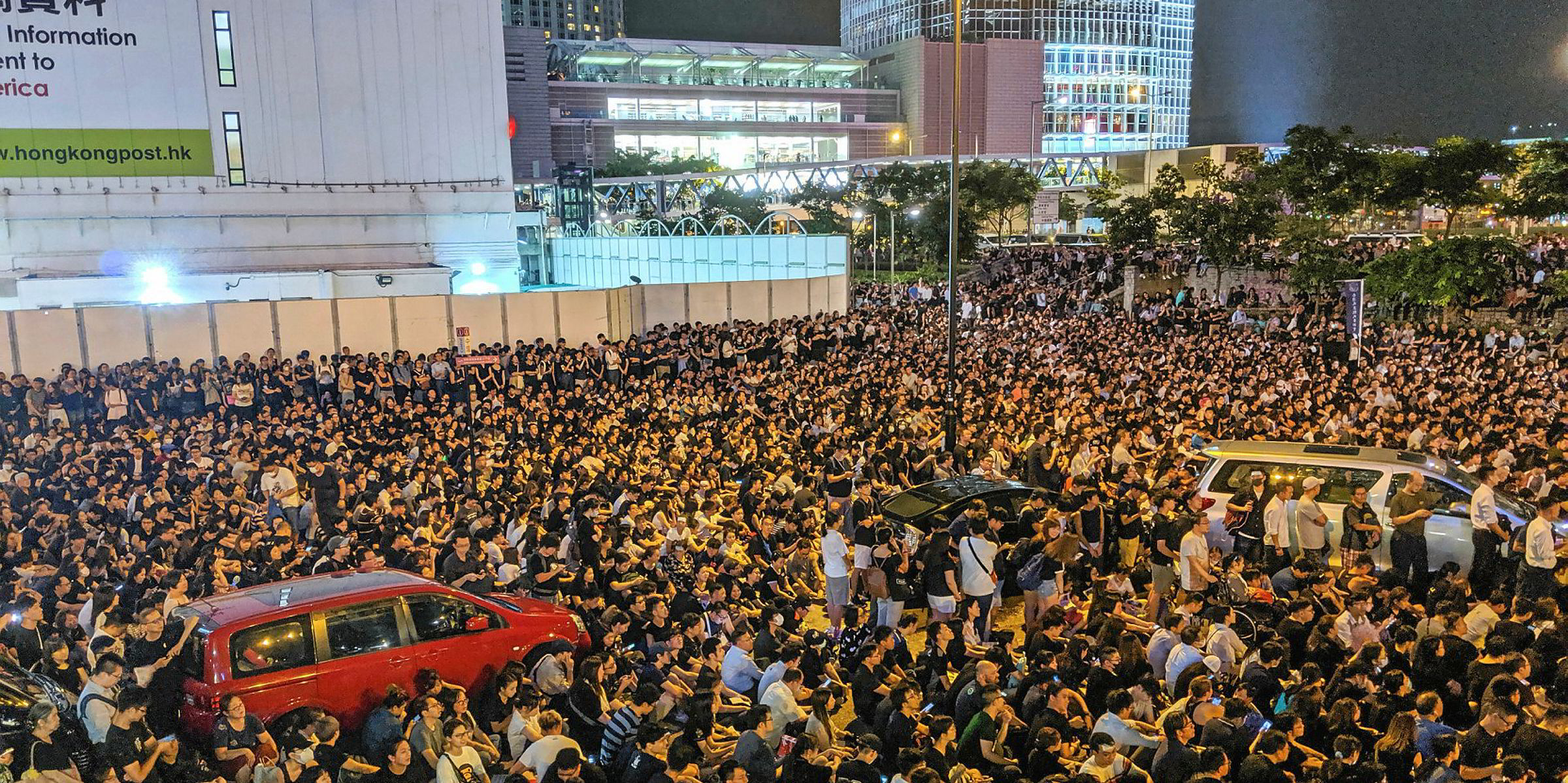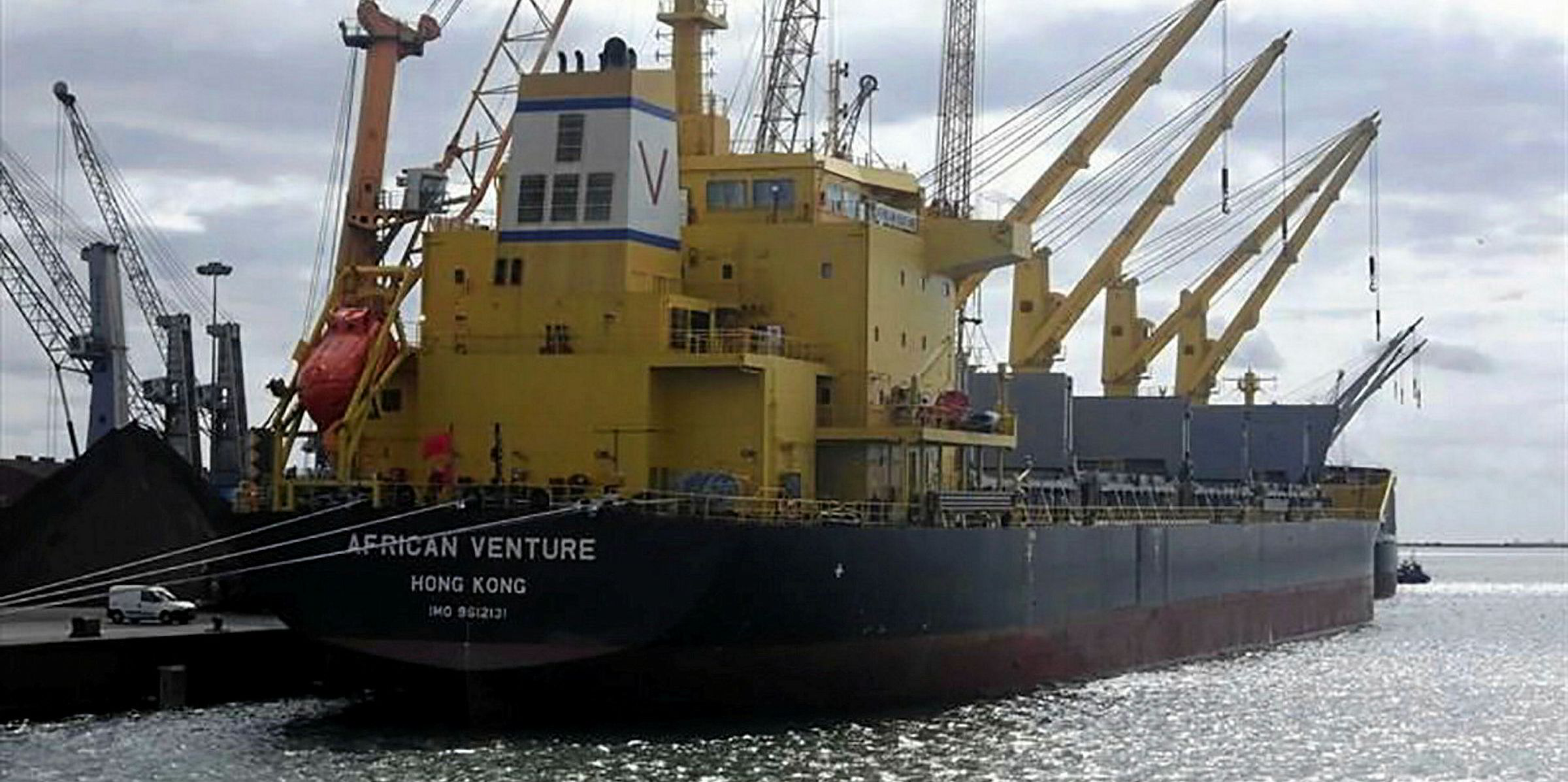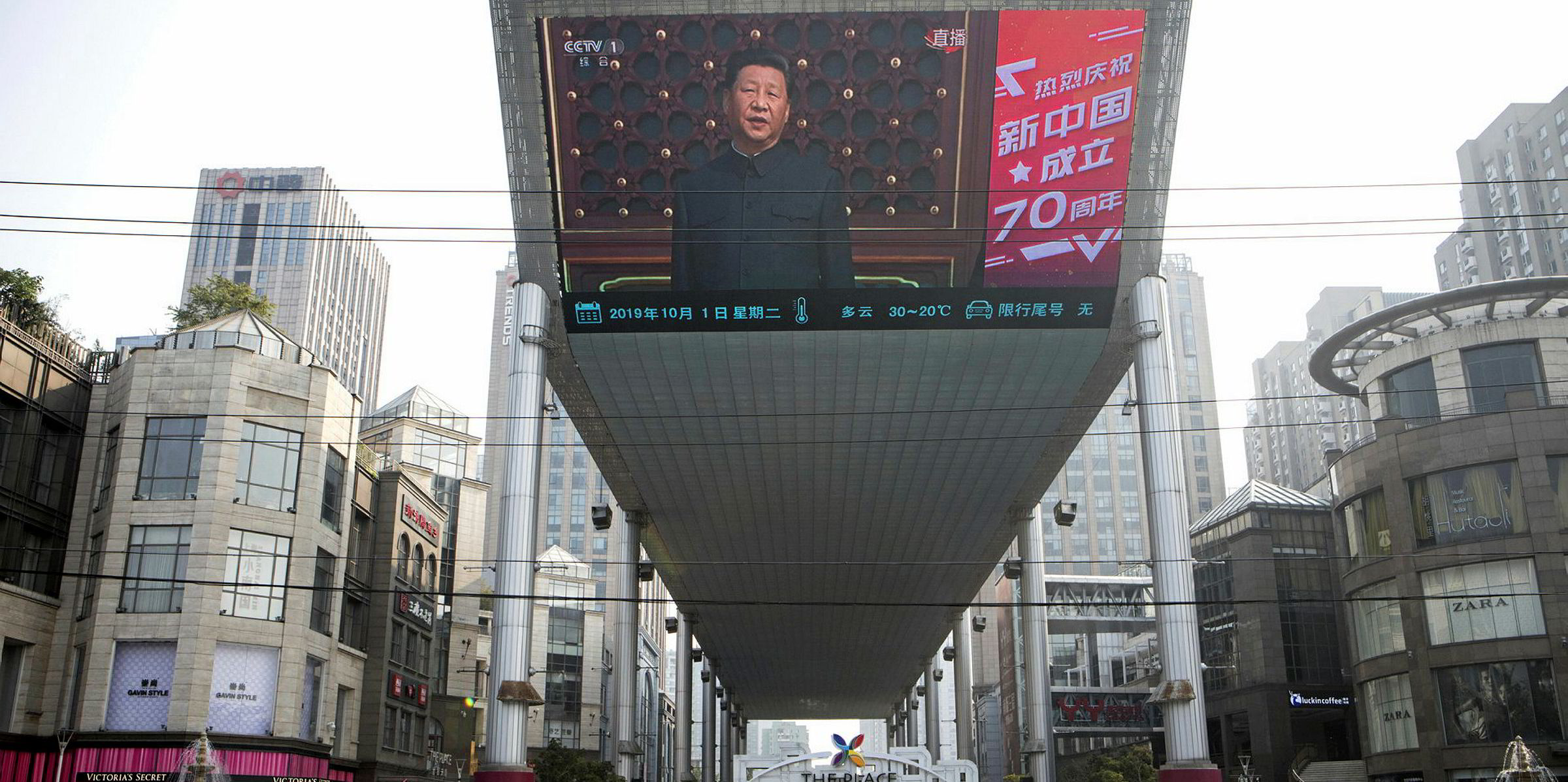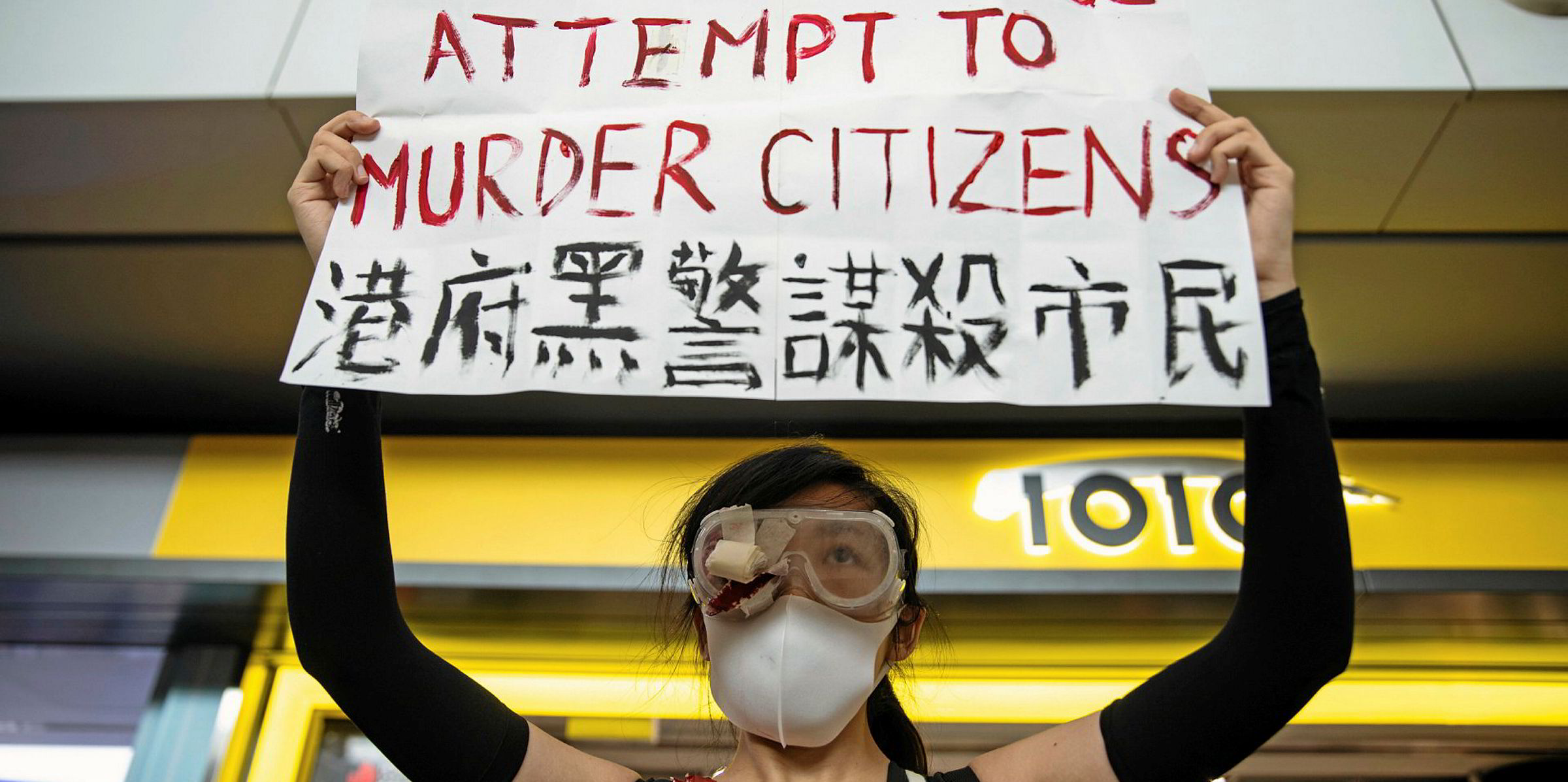Having been damaged by months of anti-government protests, Hong Kong’s fragile social fabric is being further strained by the Covid-19 outbreak that originated in China.
The Chinese special administrative region, one of the worst hit by the epidemic, saw demonstrators take to the streets earlier this month over the government’s perceived failure in stopping inflows of mainlanders from China.
All of this prompts a question that has been repeatedly asked since the late 20th century: How long can Hong Kong remain one of the top maritime cities in Asia?
With one flash point after another, unrest in Hong Kong is now widely compared with those experienced in Northern Ireland during the Troubles.
Deadly unrest
No matter how favourable its tax regime is, one can hardly envisage many shipping companies continuing to operate in the city should protests there become as deadly as those in Belfast in the 1970s.
Hong Kong’s vibrant business community has been largely built on efficient governance and a trustworthy legal regime. But both advantages appear to have been eroded, at least based on the opinions of local residents.
According to a January poll published by the Hong Kong Public Opinion Research Institute, nearly 70% of Hong Kongers do not trust the government. A separate survey suggests Hong Kong’s police force is the least trusted public authority by far.
Ironically, Beijing — ultimately responsible for Hong Kong’s political and economic situation — probably has the most to lose from a shipping perspective if the city descends into more chaos.

The shipping community of Hong Kong can be roughly categorised into three groups. The first is made up of Western shipping professionals, whose numbers have been decreasing since the UK transferred sovereignty of Hong Kong to China in 1997.
Regardless of the political events in Hong Kong, many of them have relocated to Singapore, deeming the Lion City a better base for a multinational shipping firm.
World-Wide, once Hong Kong’s largest shipowner that was controlled by the Sohmen-Pao family, acquired Norway’s Bergesen in 2003, before the newly branded BW Group moved its base to Singapore.
Goldfish bowl
“I am living in a goldfish bowl,” a Hong Kong-based European shipping veteran told TradeWinds. “There is a tiny number of us remaining.”
The second group is of traditional Hong Kong players, many of them have divested from shipping or are developing new business models.
One high-profile example would be the Tung family’s sale of Orient Overseas International to Cosco Shipping Holdings, the Chinese state-owned shipping giant, for $6.3bn in 2018.
In addition, shipping companies tend to have multiple operating bases across the globe.
“Even if Hong Kong is dead, shipping companies like those [traditional Hong Kong players] can still operate from their offices in other regions,” said a local player, adding that most companies — with the experience of handling the 1997 handover — should already have a contingency plan in place.
The third group has expanded rapidly over the past two decades. They are mainland Chinese firms attracted by Hong Kong’s common law system and robust capital markets.
Mainland players
Hong Kong is home to China Merchants Group and the second-largest operating base of China Cosco Shipping.
Some Chinese lessors are also establishing footholds in the city. CSSC (Hong Kong) Shipping, a leasing subsidiary of China State Shipbuilding Corp, launched an initial public offering of HKD 1.97bn ($252m) in Hong Kong last year.
Those companies, ultimately controlled by the Chinese government, may have difficulty finding a better operating environment than Hong Kong.
Despite recent turmoil, the city’s legal regime is still trusted by most international players. And China has not been willing to allow free flows of capital in the mainland, at least not to the same degree of freedom possessed by Hong Kong.
Singapore, of course, is a plausible alternative. But in many instances, it would serve better as a regional hub than a gateway to China, the world’s largest seaborne trading nation by far.
Despite recent reshuffles of senior Chinese officials handling Hong Kong affairs, Beijing has shown little willingness of reforming the city’s governance in a way acceptable to Hong Kong's residents, especially on the political front.
This is unfortunate, as the failure of “one country, two systems” will put many Chinese shipping players at a disadvantage.







